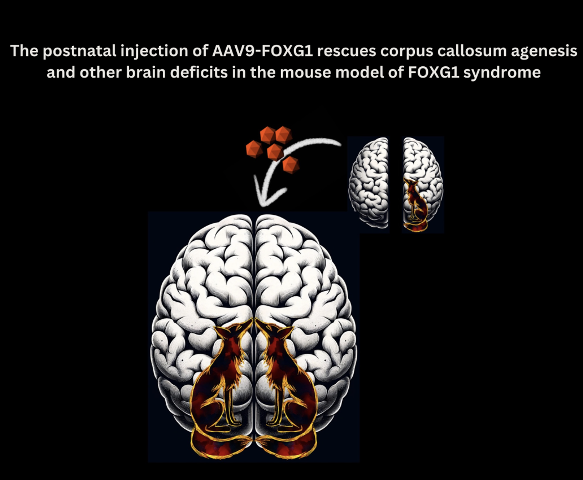Groundbreaking Study Shows Promise in AAV9 Gene Therapy for FOXG1 Syndrome
Stay connected with Business News This Week for business news, news this week, news headlines, business news, health, education, startups A landmark study led by Dr. Soo-Kyung Lee, Chief Scientific Officer at the FOXG1 Research Foundation, and Dr. Jae Lee, Professor in the Department of Biological Sciences at University at Buffalo, has found promising results in a postnatal injection of AAV9-FOXG1 to rescue brain deficits in a mouse model of FOXG 1 syndrome. The study also identified the therapeutic potential of adeno-associated virus 9 (AAV9) mediated delivery of the FOXg1 gene. The results demonstrated a wide range of brain pathologies, including amelioration of corpus callosum deficiencies, restoration of dentate gyrus morphology in the hippocampus, normalization of oligodendrocyte lineage cell numbers, and rectification of myelination anomalies. The research is being advanced towards human clinical trials.

Publié : il y a un an par Praveen dans Health
Buffalo, NY, June 11, 2024 — A landmark study led by Dr. Soo-Kyung Lee, Chief Scientific Officer at the FOXG1 Research Foundation and Empire Innovation Professor and Om P. Bahl Endowed Professor in the Department of Biological Sciences at University at Buffalo, and Dr. Jae Lee, Professor in the Department of Biological Sciences at University at Buffalo, in collaboration with Dr. Kathrin Meyer, who is responsible for the successful SMA gene therapy, has just been published in Molecular Therapy Methods & Clinical Development. The paper, titled, “The postnatal injection of AAV9-FOXG1 rescues corpus callosum agenesis and other brain deficits in the mouse model of FOXG1 syndrome,” presents novel findings that have significant implications for treating FOXG1 syndrome, a severe neurodevelopmental disorder characterized by profound brain structure abnormalities.
The study explores the therapeutic potential of adeno-associated virus 9 (AAV9) mediated delivery of the FOXG1 gene. Remarkably, intracerebroventricular injection of AAV9-FOXG1 in a Foxg1 heterozygous mouse model “postnatally” demonstrated the rescue of a wide range of brain pathologies including the amelioration of corpus callosum deficiencies, restoration of dentate gyrus morphology in the hippocampus, normalization of oligodendrocyte lineage cell numbers, and rectification of myelination anomalies.
“Our findings highlight the efficacy of AAV9-based gene therapy as a viable treatment strategy for FOXG1 syndrome and potentially other neurodevelopmental disorders with similar brain malformations,” said Dr. Jae Lee. “This research asserts the therapeutic relevance of our approach in postnatal stages, which is a critical time frame for intervention.”
Dr. Soo-Kyung Lee commented, “We are thrilled by the full rescue of brain structure abnormalities observed in our mouse model through this study. It marks a significant step forward in our research. With these promising results, we are eager to advance this AAV9 gene therapy towards human clinical trials, hopeful that we can extend these breakthroughs to benefit children with FOXG1 syndrome.”
This pioneering work provides a solid foundation for advancing this gene therapy towards human clinical trials, aiming to offer a transformative impact on the lives of patients with FOXG1 syndrome.
The FOXG1 Research Foundation continues to lead the way in innovative research for rare neurodevelopmental disorders, emphasizing the urgency and potential of cutting-edge treatments to alter the course of these conditions fundamentally.
Les sujets: Data
